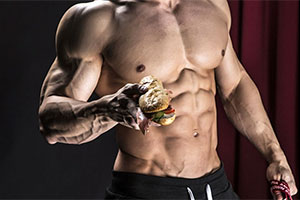The other day, I was having a conversation with several nutrition graduate students when someone made the comment that peanut butter is a “terrible food”.
I’ve always personally thought that there really is no such thing as a terrible food, or even a bad food for that matter. Tome, it is always a matter of moderation and variety.
The problem with peanut butter is the presence of two certain strains of mold – Aspergillus Flavus and Aspergillus Parasiticus. While we can’t see either of these molds with the naked eye, they are almost always present in peanut butter(and many varieties of nuts, corn, grains, spices, soybeans,beer and milk for that matter).
The trouble with these molds is that they secrete a natural mycotoxin called aflatoxin, a known carcinogen that can cause liver cancer in laboratory animals.
In 1965, the USDA set standards for acceptable levels of aflatoxin in peanuts. Every peanut sheller is required by the USDA to have every lot of peanuts tested by a government-approved lab prior to shipping. Any that are found to be in excess of 20 parts per billion (ppb) are not allowed for sale for human consumption. However, many health professionals feel that this standard may be too high, and should be lowered.
Since it seems inevitable that Peanut butter will contain some amount of aflatoxin, it begs the question why eat it at all?
Well firstly, It’s a cheap source of protein, niacin, vitamin B6,and artery-friendly monounsaturated fats. Secondly, it just tastes good, and good tasting food is hard to avoid (mind you, people with peanut allergies are very good at it).
You could just try and ‘replace’ peanut butter with a substitute, but unfortunately, great tasting peanut butter alternatives like almond butter and my personal favorite cashew butter, also run the risk of containing aflatoxins. And,although a study conducted by the FSA in 2000-2001 suggests that these peanut butter alternatives may have lower contents of aflatoxins, the truth is, they will still contain some aflatoxins.
For the most part, exposure to aflatoxins seems unavoidable with the typical North American diet. Again, increasing the variety of foods you eat seems to be an appropriate course of action when dealing with Aflatoxins, so try other nut butters including Almond, sunflower and cashew.
The best course of action is most likely to try your best to increase the amounts of fruits and vegetables in your diet. After all, if you can’t help but eat small amounts of cancer causing agents every day, it makes sense to offset this by eating very large amounts of cancer fighting agents, like the ones found in fruits and vegetables.
BP
PS- Another key to combating the potentially harmful impact of mycotoxins in your diet is to reduce the amount of food you eat. Research conducted on the benefits of caloric restriction and intermittent periods of short term fasting have shown that they can lower the risk of certain types of cancer and suppress tumor growth.
PPS- If you are interested in a diet plan that utilizes a super easy and effective method of using short periods of fasting as a way to reduce calories then check out Eat Stop Eat








